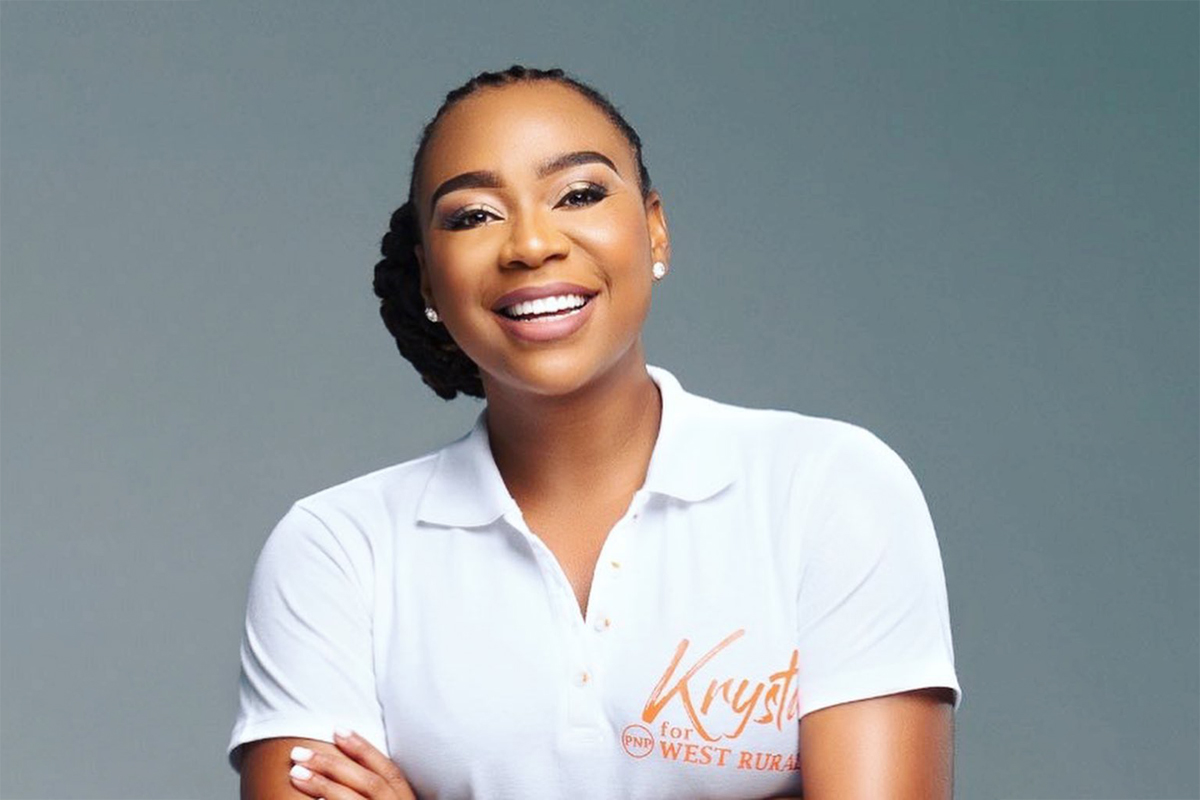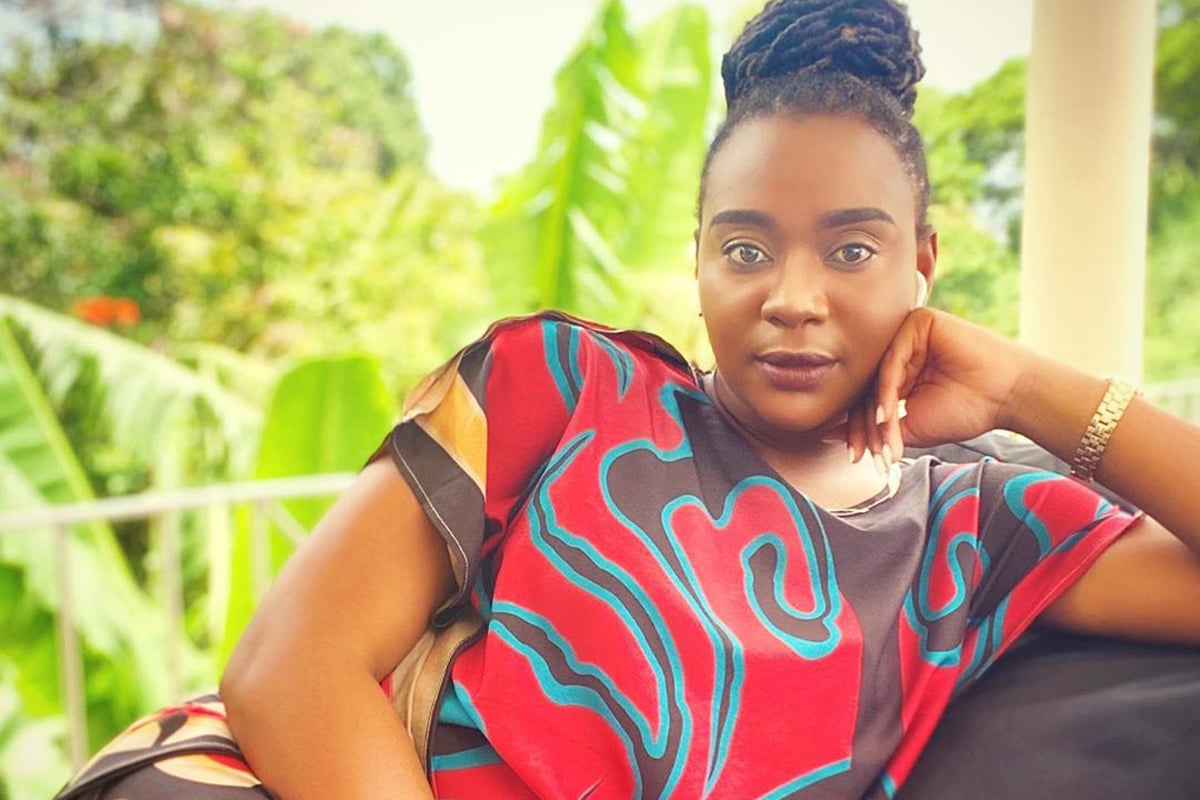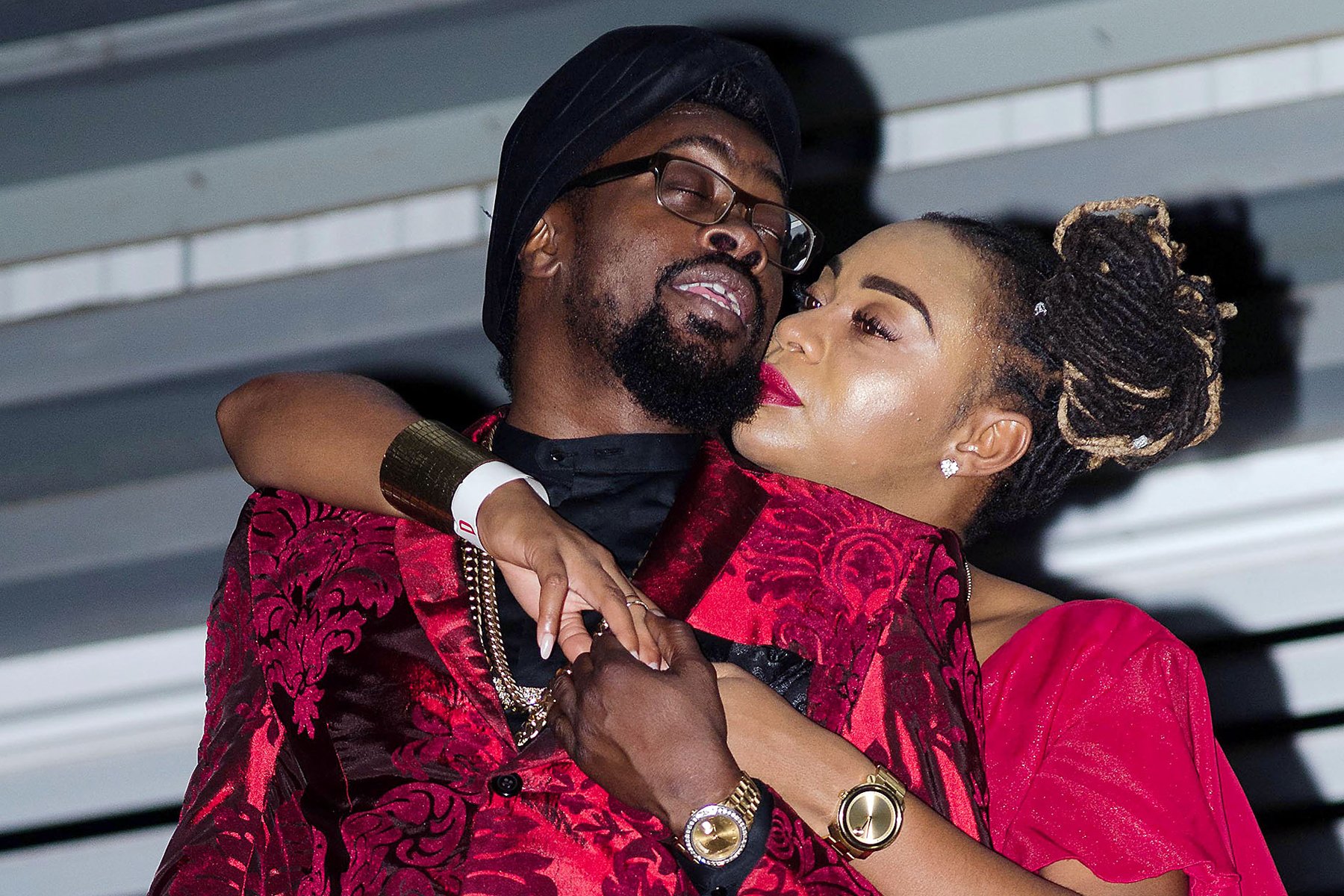21 Questions With Krystal Tomlinson

Krystal Tomlinson is a media personality, politician, mom and Queen to Dancehall King Beenie Man. She is currently running to represent the people of West Rural St. Andrew in the upcoming general elections in Jamaica.
In this abridged interview with JR Watkis, she speaks about her role as a leader, family woman, change-maker, and her commitment to Jamaica’s present and future development.
Krystal wassup?
I’m ok JR thanks for having me.
You’ve made several transitions in your career?
I just want to have more control over my time. That’s what it came down to. I had a challenge showing up for my family because of work. I am now working to take care of my family so I don’t put a burden on anyone else to meet my needs. Sometimes in the pursuit of a job and a paycheck, you end up isolating friends and family but in this Millenial age, we can reassess without feeling guilty.
Where are you from?
I was born in Kingston at the Victoria Jubilee Hospital.
Then my mother moved to St. Catherine, Portmore and I was there until about 14 then mommy moved to Mandeville. She wanted to ship me off to boarding school because she had difficulty working and monitoring me. So I begged and bawled not to wear a straw hat (at boarding school) and told her I’d change my ways (laughs).
That straw hat was jarring for me because my family was not conservative. Church was optional and the layer of decency was about attiring yourself and language because it’s decent. You don’t talk to people like they are worth nothing. I was raised by mostly females and they had standards for how they carried themselves and how they spoke to people and how they allowed people to speak to them.
Where is your father?
My father never never paid a school fee or bought a pen or a book, nothing at all but my mother never cuss my father. She never prevented us from going to see him for summer holidays. We could visit him in Kingston and she never sent us off with a “You aguh look for your wutlis puppa now”. She never made us feel he was a bad person, it was when he passed away we asked questions and she explained why it could not be and I came to respect my mother’s approach. Because I saw how other mothers dealt with being single parents and because of her we had a great relationship with daddy, and loved daddy because she didn’t harbor any resentment with him.
What’s your first memory of yourself?
Ahhhhh…The earliest memory I have…is when I was by my grandmother’s house on my father’s side, they are Jehovah’s Witnesses reading the watchtower and there’s a bible story book they allowed me to read. I was about two or three years old reading about heroes in the Bible. I’ve never thought about this question but reading that book of bible stories (is my first memory).
How much of yourself do you see in other people in order to help them solve their problems?
I see a lot of me and I connect deeply with young adults. I don’t get angry with teenagers for making mistakes because I feel like that is me and if they turn it (their behavior) around right now they can be all that I am and so much more. The work I do right now in terms of mentorship deliberately targets teenagers that are having a difficult time in school. Disciplinary problems, academic problems, self-esteem issues.
So you did media, tell me about media. What’s good and what’s bad?
The landscape is so small it takes little effort to become a household name (in Jamaica). There are two free to air stations one more popular than the other and I had my program on the popular stations. I used to be on the bus and people calling to me that I didn’t know so it gets overwhelming pretty quickly.
Once you are in, you are in and part of the problem is learning how to manage all the opportunities that come, the judgments and unreasonable standards people have of you. Some days my belly will be big and I still think I’m hot but someone else sees it and say “oh my God she eating too much”. So you wonder when you gave away your right and that’s a challenge because in people’s mind you are a celebrity, so you become an automatic role model.
Another challenge is the pay sucks.
How do you think that can be changed?
First, the rules have to change about how local producers and their content are treated. Even if you are not going to pay them don’t charge them, allow them to build and so they can build a proper brand for export. Maybe the government needs to mandate through the broadcasting commission, that there needs to be a percentage of local programs on air. Offer rebates and incentives to corporate sponsors.
I can hold you to that when you become a government minister?
Maybe if they give me the Information Ministry. I didn’t tell you the benefit (of being in media)
Yes?
It gives you a platform to build a brand and craft your own message. You can create a version of you that you can live up to. Being seen through a respectful lens helps you to grow yourself personally.
You made a switch from corporate to politics…what’s your personal politics?
In my ideal world I live in a country that is built on the core values of socialism. You take from people as much as they can give reasonably and give to others according to what they need. You want to bring people up to a standard so they can feel the dignity of being a human being. The countries in Europe such Sweden and Norway are built on principles of socialism but they allow democracy to approve those decisions. The best-run countries with higher standards of living are those that put a lot of emphasis on social parity.
You mean getting people to make the most of themselves… because if they are not then they’ll become a burden?
Education, making sure people have access to education and training means I want to be a producer and carry my weight. With the right tools, I can become a builder and not just a resident in the country. I choose a political party that aligns with those values.
The fundamentals of the People’s National Party is really democratic socialism. Michael Manley had to change his politics after a while but certainly when he entered the idea was that the state could centralize all the activities and take care of its own and that turned out not to be so.
You think we would have been better off if that policy had been allowed to flourish?
I think so in a democratic process as opposed to a Prime Minister saying this is where we going. Absent the permission from the people it’s easy to convince them this is a bad move, especially with Cuba right beside us doing something similar. So it created a lot of fear before there was an understanding of what it meant. Absent that word “democratic”, socialism sounds like poison.
Your role now in politics as a youth is influential in winning the next general election. The age 24-35 has the most influence and the most numbers according to the EOJ. So what’s your role and why did you enter this process to actively participate?
Because I know youth has the power to change politics. What I don’t want is just a change of government. The politics doesn’t change unless there are change makers inside the parties. The voters on their own without having change-makers inside will end up repeating the same issues. I want to be on the inside to rebuild.
The role is a pre-election role where you help to set the agenda, it’s an election role where you help to choose the leader, and it’s a post-election role where you insist on accountability.
More and more today we are seeing insistences on accountability for youth where we insist on a transformational leader post-Obama. What we haven’t figured out yet as youth is how to organize in the beginning to say “this is what we want and if we don’t get it we will change our vote”. Youth have to find clear ways and succinct ways to express what they want as a youth.

Tell me about your five-year goal in politics?
I want to see youth as a massive force in their communities. Many parents and grandparents are expecting their educated children to lead the issues now.
What’s your idea of leadership?
Service, responsibility, and results. You also need to be able to measure your results too.
Do you think the church is playing an active role in how people see themselves?
They continue to.
Which political leader you think is best suited to run the country and why?
Peter Phillips.
Why?
I’ve seen his results as Minister of National security, I’ve seen his results as a Minister Of Transport. We credit him with the model of the Jamaica Urban Transit company. He is internationally lauded for rescuing the Jamaican economy after we failed three consecutive IMF tests. Every portfolio he has been given, he leads and produces results we can measure. So when I look who is fit to lead the country I’m looking at the person that serves and delivered results.
Do you think he managed to translate to the 25-35 demographic?
He is the first politician to be given man of the year by the Gleaner.

How do you manage to remain out of the shadows of Beenie Man who is a dominant figure?
He’s a master at what he does and he’s an artist. If you are with someone who has a strong brand make sure they are not afraid of giving you space to shine. He’s proud of people seeing me as a role model and it helps to validate his own choice in a partner so we’re not competing.
Krystal thank you so much.
Thanks JR.
For the full version of this podcast listen to the Top Form Podcast on Spotify, IHeartRadio, Apple Podcast, or wherever you listen to podcast. Email: worldmusicviews@gmail.com
